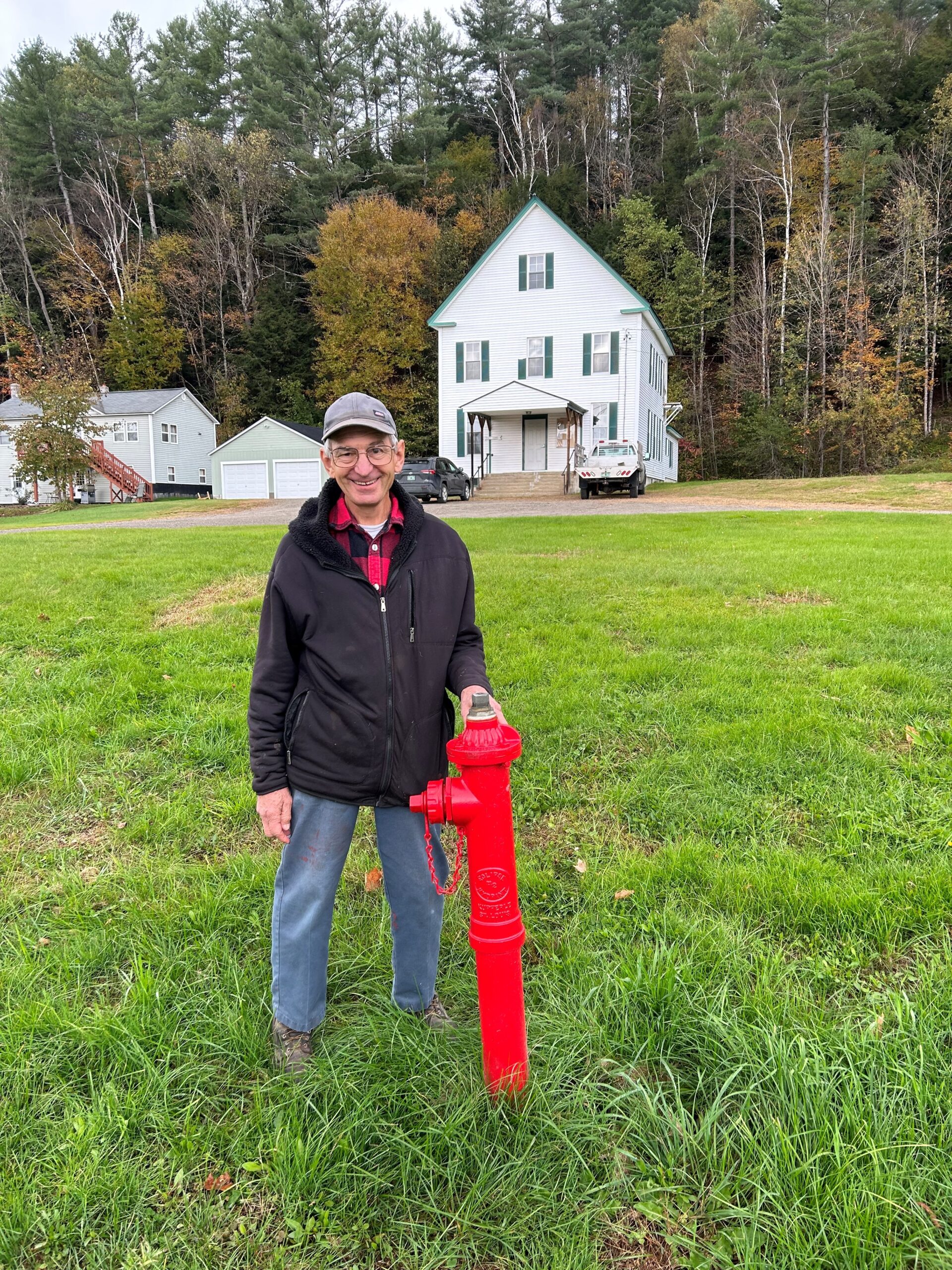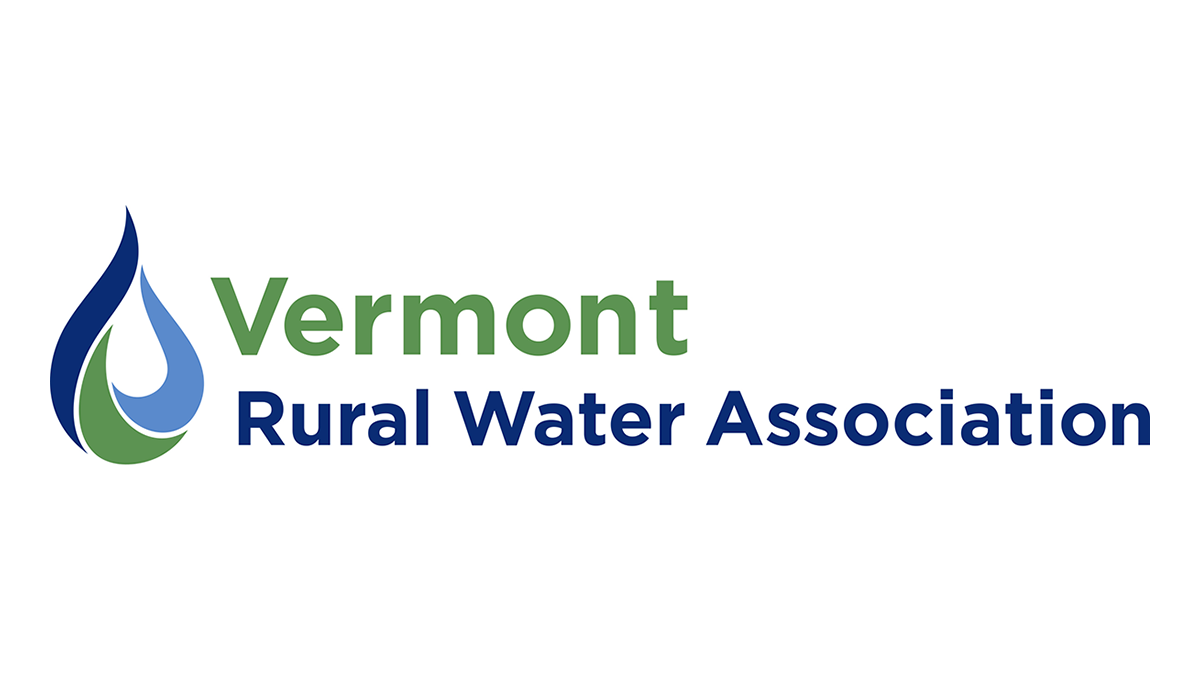by Liz Royer
This article was published in the winter 2023-2024 issue of our newsletter.
On a chilly October day, water system specialist Paul Sestito and I made the journey to Bloomfield, Vermont to check in with long-time operator Chester Smart and get his thoughts on the unique water workforce challenges in the Northeast Kingdom.
Where is Bloomfield, you ask? From Island Pond, keep driving east another 20 minutes. The town of 221 residents will appear just before you hit the Connecticut River and the New Hampshire border.

Chester Smart, water operator for the Town of Bloomfield, VT.
The Bloomfield Water System serves 19 connections, mostly residences, as well as Debanville’s General Store and Café. Since the Town of Bloomfield is the owner of the system, the Selectboard also functions as the water board. One of the Selectboard members serves as the back-up operator. The annual budget comes from user rates (called “rent”) of $425 per year, with the general store paying double. The town is currently repaying a state revolving fund (SRF) loan of $38,000 for a new storage building and upgrades to the disinfection system.
Chester is the Water Commissioner for the Town of Bloomfield and is both the designated operator and the administrative contact for the drinking water system. For his operating services, he bills the town for an average of only 15 minutes per day. Chester is officially retired from many of his other jobs, but he still helps on weekends at other water and wastewater systems in Vermont and New Hampshire.
Like many very small utilities, Bloomfield Water System is financially limited because it has so few ratepayers. This, in turn, limits how much it can afford to pay operators. The current arrangement seems to work for Chester in his semi-retirement, but Bloomfield may have a hard time hiring a replacement when he wants to fully retire.
Chester grew up in the Lakes region of New Hampshire and joined the Air Force in 1969 with the plan to learn heavy equipment operations. One of his drill sergeants mentioned the option of water and wastewater and he decided that sounded more interesting. Chester spent 14 weeks at Shepard AFB in Texas receiving training in drinking water and wastewater operations. He likes to contrast that training program to the B-52 mechanic course, which was only six weeks!
After leaving the military, Chester went to Colorado for farrier (horseshoeing) school and then moved back to New Hampshire to work for a veterinarian. His dream was to buy a farm, but he didn’t qualify for a loan. He began working as a water and wastewater operator in Bristol, New Hampshire. Finally, he was able to purchase a farm in Brunswick, Vermont and milked 50 cows for 15 years there. In 2003 he then added water and wastewater work in Stratford, New Hampshire, and became the operator in Bloomfield in 2007.
Chester said he really enjoys the water and wastewater work, except for getting called out in the middle of the night. He has seen the industry change quite a bit with more regulations creating more paperwork. He says this was a challenge back when they had dial-up internet! Chester encourages all operators to keep an open mind and be sure to keep up with current technology and learn as much as you can about electrical work.
On the issue of workforce, Chester thinks it’s important to get younger operators into the field and make more people aware that these good jobs exist. He was proud to tell us about hiring a young person to paint fire hydrants 35 years ago who now is the superintendent of a water system—you have to start somewhere!
Chester suggests that others could follow his model of combining jobs in water and wastewater operations with farm work or dairy management. There are many similarities between the fields and water/wastewater provides a steady paycheck while pursuing a passion for farming.
Chester’s story is not unique to the NEK or Vermont, nor are the challenges faced by small water systems. But what is unique to Vermont are the number of very small community water systems—town-owned, fire districts, and others—that are struggling with financial, managerial, and workforce sustainability. A big piece of the sustainability puzzle is operations and staffing. It is important to include succession planning, back-up operations, and other workforce issues in your management and board discussions. And of course, reach out to Vermont Rural Water for advice and assistance!

